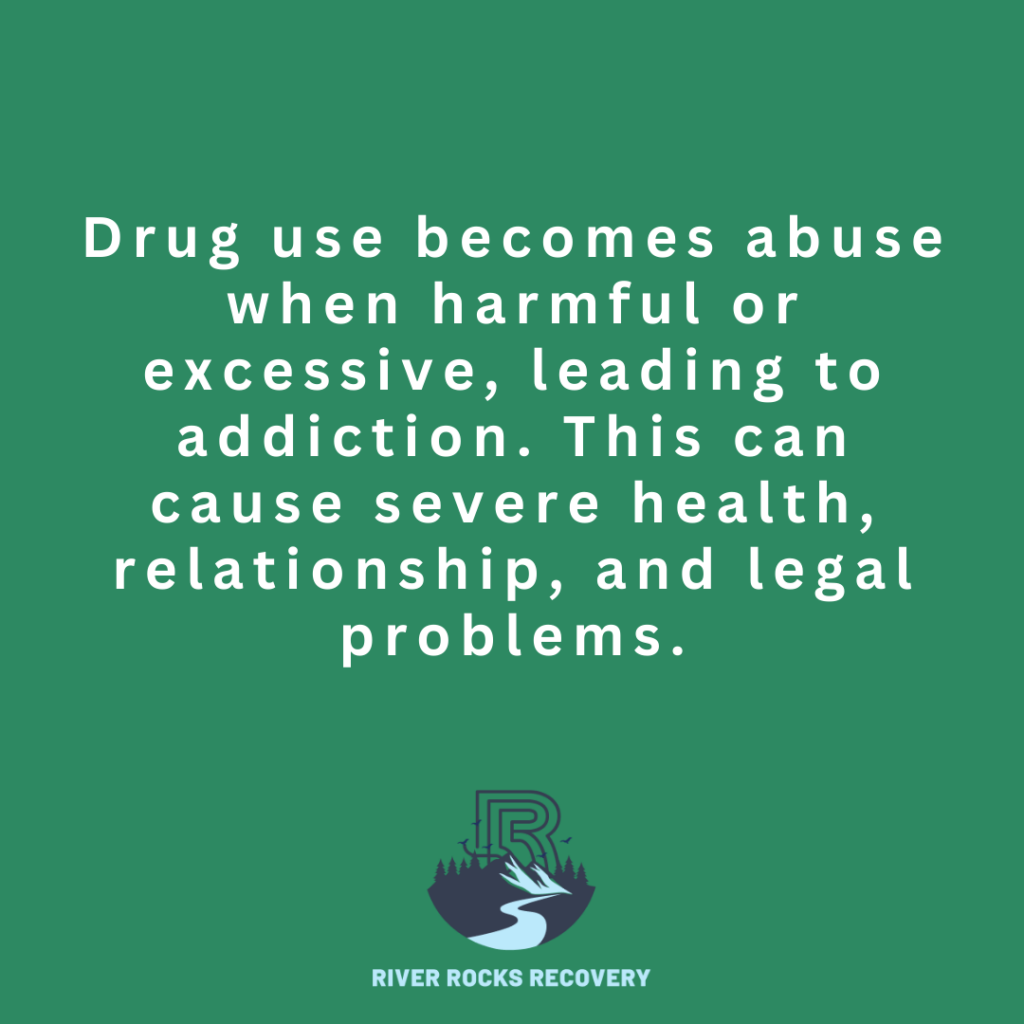The need to make a distinction between drug use and drug abuse is very important here. Drug use may get started for a very minor reason, say, trying something new or just unwinding in general.
However, it can turn dangerous in no more than a very short time. Knowing when this happens may help a person or someone close get help before it’s too late with the help of Acceptance and Commitment Therapy.
What Is Drug Use?
It includes activities regarding alcohol, prescription drugs, and over-the-counter or recreational drugs. Some use these drugs to unwind, have fun, or just get through the stress of living. If used only occasionally and carefully, drug use would not be so bad. The thing is, very easily it turns into something more serious.
Here are some statistics on drug use and drug abuse in the United States:
- Drug Use:
- In 2020, approximately 37 million Americans aged 12 or older were current illegal drug users (used within the last 30 days)
- NCDAS: Substance Abuse and Addiction Statistics [2023]
- The most commonly used illicit drugs were marijuana, prescription pain relievers, and cocaine.
- Drug Abuse:
- In 2020, an estimated 10.1 million Americans aged 12 or older had a substance use disorder.
- Opioid overdoses were a major public health crisis, leading to a significant increase in overdose deaths.
How to Tell If Someone is Abusing Drugs?
Following are the signs that drug use has become drug abuse:
- Need More: You need more of the drug to have the same effect.
- Feeling Bad Without It: You feel sick or upset when you don’t use the drug.
- Ignoring Responsibilities: You skip school, work, or other important things because of drug use.
- Losing Interest: You stop caring about activities or hobbies you once enjoyed.
- Problems with Others: You keep using drugs even when it’s causing fights or problems with family, friends, or at school.
What Happens When Drug Abuse Takes Over?
This can develop some pretty serious problems with drug abuse. It hurts your body, with health problems like heart troubles, liver damage, or overdose. You also hurt your mind through anxiety, depression, and other mental health disorders. This also strains relationships with family and friends, gets you in trouble at school or with the law, and into money problems, too.
If drug abuse continues, it can lead to addiction—a disease state characterized by compulsive drug seeking and use despite harmful consequences. And this is where Substance Abuse Treatment steps in.
Seek Help: Addiction Treatment Programs
One of the programs that can help you get your life on track and make sure you won’t abuse the necessary drugs is ACT. These might include programs for medical treatment, counseling, and therapy to get you through the physical and mental aspects of addiction.
Cognitive-behavioral treatment will teach you about the problems in the way you think about using drugs and how to change. Dialectical Behavior Therapy and Acceptance and Commitment Therapy are other therapies that work on teaching self-management of feelings and handling stress without drugs.
What Is a Partial Hospitalization Program?
A Partial Hospitalization Program could be for those who need a bit more help. The PHPs offer intensive daily treatment but allow individuals to go home at night. This would hence be good for people who call for far greater support than regular therapy is capable of giving, not to the degree that they would need to stay in the hospital full-time.
PHPs offer both individual and group therapy combined with a modest amount of medical care, hence rendering this the most robust alternative for those clients with serious drug abuse problems.
Conclusion
The ability to draw a line between drug use and drug abuse can be very instrumental in enabling these individuals to make the right choice regarding the onset of an emerging problem and when to seek treatment. While there does not seem to be much harm in occasional drug use, one should still be attentive to the warning signs for drug abuse.
Substance abuse treatment and Addiction therapy programs may be just the thing to help overcome addiction and live a much healthier and much happier life.
River Rocks Recovery: Your Path to a Brighter Future
River Rocks Recovery is a comprehensive addiction treatment center in Ohio dedicated to helping individuals overcome substance abuse and regain control of their lives. Our experienced team of professionals offers personalized treatment plans tailored to your unique needs.
At River Rocks Recovery, we believe in a holistic approach to addiction treatment. We address the physical, emotional, and psychological aspects of addiction to ensure lasting recovery. We are committed to providing the highest quality of care to our clients. Our team of experienced professionals is dedicated to your success and will work tirelessly to help you achieve your recovery goals. To learn more about River Rocks Recovery or to schedule a consultation, please contact us at:(888) 905-6281 or visit us online.
FAQs: Drug Use vs. Drug Abuse
What is the difference between drug use and drug abuse?
Drug use refers to the intentional consumption of a substance, while drug abuse involves using a substance in a harmful or excessive way that leads to negative consequences.
What are some common signs of drug abuse?
Signs of drug abuse may include:
- Changes in behavior: Withdrawal from social activities, changes in appearance, or secretive behavior.
- Problems with relationships: Strained relationships with family and friends.
- Legal issues: Trouble with the law due to substance use.
- Physical health problems: Health issues related to drug use, such as liver damage or heart problems.
- Psychological problems: Mood swings, anxiety, depression, or psychosis.
What are the risks associated with each type of drug?
The risks associated with drug abuse vary depending on the type of drug and the individual’s health and circumstances. Some potential risks include overdose, addiction, liver damage, heart problems, and mental health issues.
How can I tell if someone is struggling with drug abuse?
If you notice changes in a person’s behavior, appearance, or relationships, it may be a sign that they are struggling with drug abuse.





























